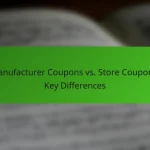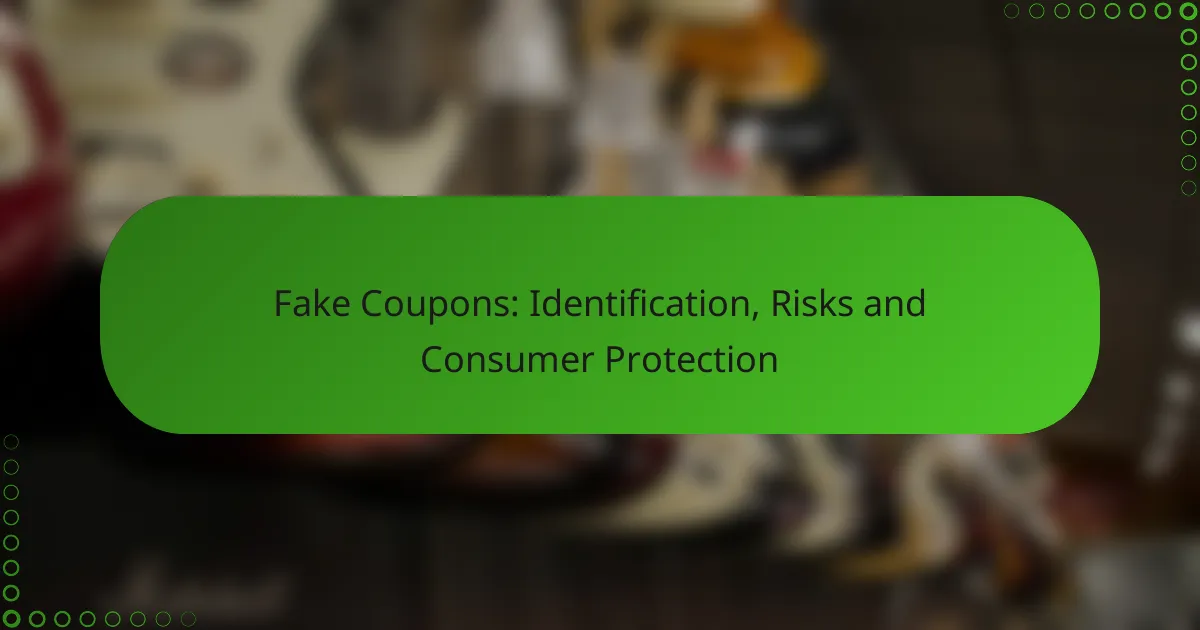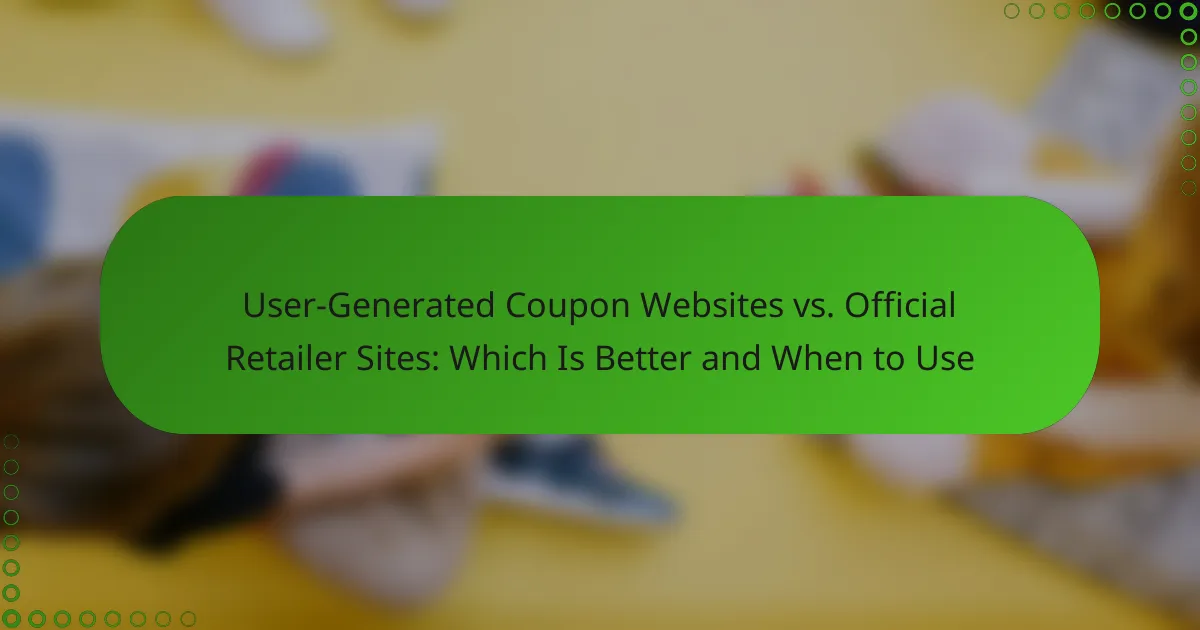Fake coupons pose a significant threat to consumers, leading to financial loss and potential legal issues. Identifying these fraudulent offers requires vigilance in checking expiration dates, sources, and formatting. By staying informed and utilizing verification tools, consumers can protect themselves from scams and safeguard their personal information.
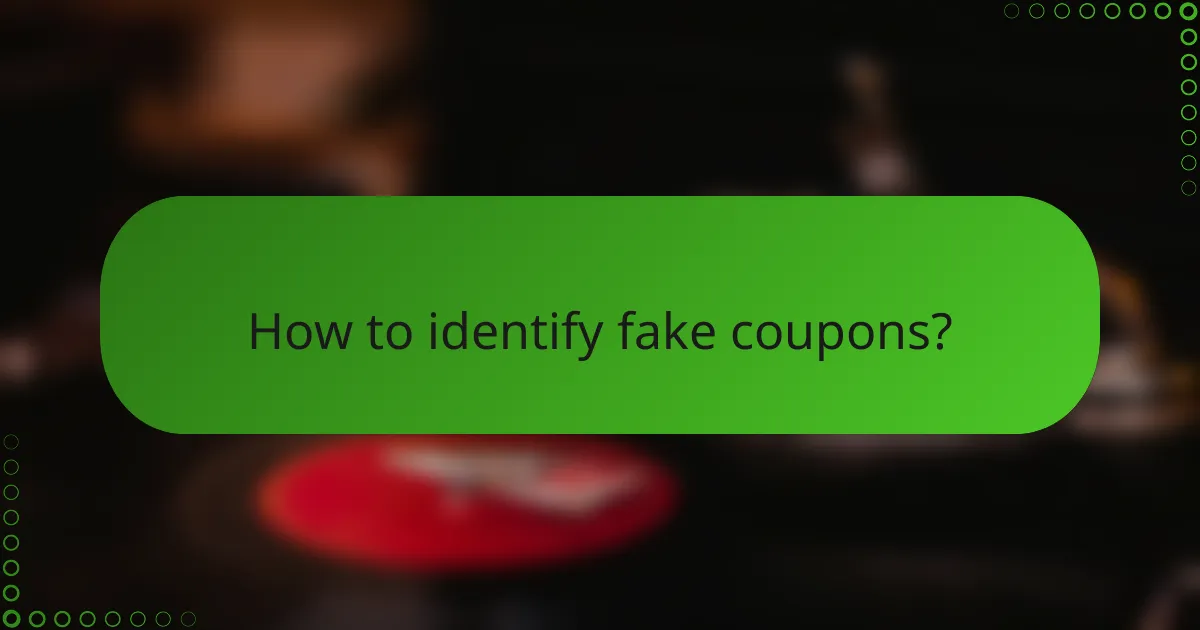
How to identify fake coupons?
Identifying fake coupons involves checking for specific signs that indicate authenticity. By being vigilant about expiration dates, sources, formatting, terms, and using verification tools, consumers can protect themselves from scams.
Check for expiration dates
Always look for expiration dates on coupons. Legitimate coupons typically have a clear validity period, often ranging from a few weeks to several months. If a coupon lacks an expiration date or has already expired, it may be a fake.
Be cautious with coupons that seem to have unusually long validity periods, as this can be a red flag. Most reputable brands do not issue coupons that last for years.
Verify the source
Ensure that the coupon comes from a reputable source. Coupons from official brand websites, well-known retailers, or trusted coupon sites are generally safe. Avoid coupons shared on social media or unknown websites, as these are often counterfeit.
If you receive a coupon via email, check the sender’s address for authenticity. Phishing scams often use similar-looking email addresses to trick consumers.
Look for unusual formatting
Examine the coupon for any unusual formatting or printing errors. Legitimate coupons are professionally designed and printed, while fake ones may have blurry images, incorrect logos, or inconsistent fonts. Pay attention to the overall quality of the paper as well.
Check for barcodes and QR codes that are poorly printed or missing entirely. Authentic coupons usually have scannable codes that can be verified at the point of sale.
Examine the terms and conditions
Read the terms and conditions carefully. Genuine coupons will have clear, concise terms outlining how and where they can be used. If the terms are vague or overly complicated, it might indicate a fake.
Look for specific details such as eligible products, purchase requirements, and any restrictions. If these details seem inconsistent with the brand’s usual practices, proceed with caution.
Use coupon verification websites
Utilize coupon verification websites to check the legitimacy of a coupon. These platforms often provide databases of valid coupons and can help you confirm whether a coupon is real or fake.
Some popular verification sites include RetailMeNot and Coupons.com, which regularly update their listings. Always cross-reference multiple sources to ensure accuracy before using a coupon.

What are the risks of using fake coupons?
Using fake coupons can lead to significant financial and reputational risks for consumers. These fraudulent offers may result in monetary loss, compromised personal information, and potential legal issues.
Financial loss
Consumers who use fake coupons often face financial loss when they attempt to redeem them. Retailers may reject these coupons, leading to out-of-pocket expenses that were initially expected to be covered by the discount.
Additionally, some fake coupons may require upfront payment for access, resulting in a loss even before attempting to use them. Always verify the source of a coupon to avoid unexpected costs.
Data theft
Fake coupons can be a gateway for data theft, as many fraudulent sites ask for personal information. When consumers input sensitive details, they risk having their data stolen and misused.
To protect against data theft, avoid sharing personal information unless the source is verified and trustworthy. Look for secure websites (indicated by “https”) when entering any personal data.
Legal consequences
Using fake coupons can lead to legal consequences, including potential criminal charges for fraud. Retailers may pursue legal action against individuals who knowingly attempt to use counterfeit coupons.
It’s crucial to understand that even unintentional use of fake coupons can result in penalties. Always ensure that the coupons you use are legitimate to avoid legal troubles.
Loss of trust in brands
Frequent exposure to fake coupons can erode consumer trust in brands. When customers encounter fraudulent offers, they may become skeptical of legitimate promotions, affecting their purchasing decisions.
To maintain trust, brands must actively combat fraud and communicate transparently with consumers. As a consumer, stick to official brand channels to ensure the authenticity of any coupons you use.
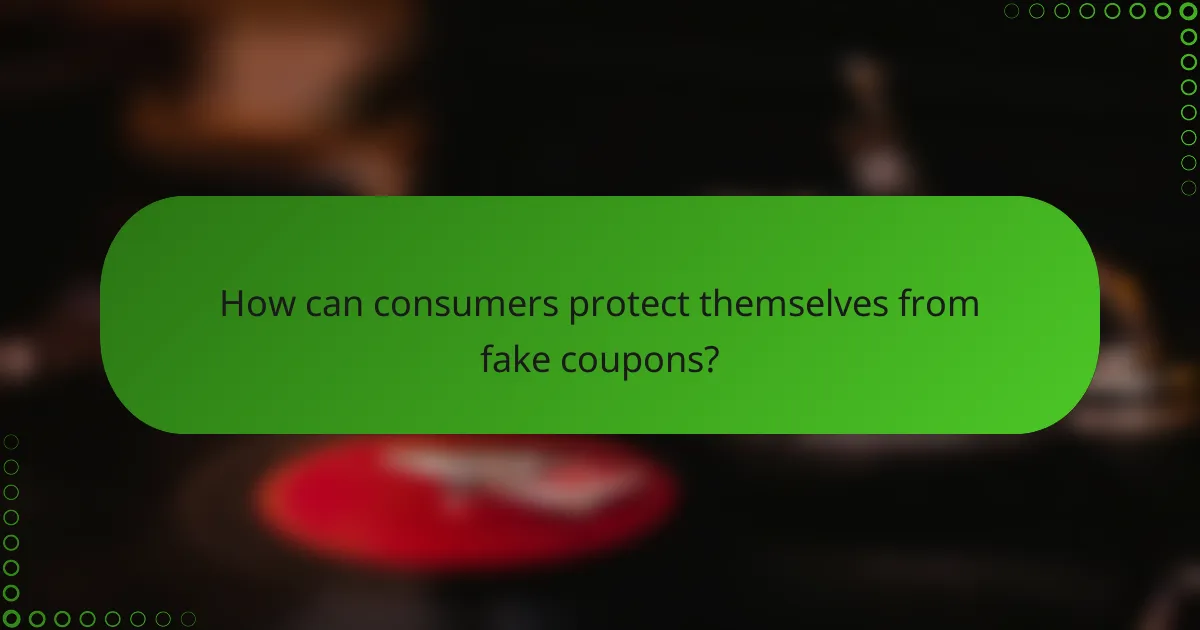
How can consumers protect themselves from fake coupons?
Consumers can protect themselves from fake coupons by being vigilant and informed about legitimate sources, reporting any suspicious offers, using secure payment methods, and keeping their personal information private. These proactive steps help minimize the risk of falling victim to scams.
Educate yourself on legitimate sources
Understanding where to find authentic coupons is crucial. Stick to well-known retailers, official brand websites, and reputable coupon sites. Avoid unfamiliar platforms that promise unrealistic discounts, as they may be fraudulent.
Familiarize yourself with common coupon formats and terms, such as “printable,” “digital,” or “mail-in rebate.” Recognizing these can help you identify legitimate offers quickly.
Report suspicious coupons
If you encounter a coupon that seems dubious, report it to the retailer or the platform where you found it. Many companies have dedicated channels for reporting fraud, which can help protect other consumers.
Additionally, you can report counterfeit coupons to consumer protection agencies, such as the Federal Trade Commission (FTC) in the United States. This helps authorities track and combat fraudulent activities.
Use secure payment methods
When making purchases with coupons, opt for secure payment methods like credit cards or trusted payment services. These options often provide fraud protection, allowing you to dispute unauthorized charges.
Avoid using cash or wire transfers for coupon-related transactions, as these methods offer little recourse if you fall victim to a scam.
Keep personal information private
Be cautious about sharing personal information when redeeming coupons. Legitimate retailers typically do not require sensitive data, such as your Social Security number or bank account details, to process a coupon.
Always read the privacy policy of any website before providing your information. Ensure that the site uses secure connections (look for “https://” in the URL) to protect your data from potential breaches.
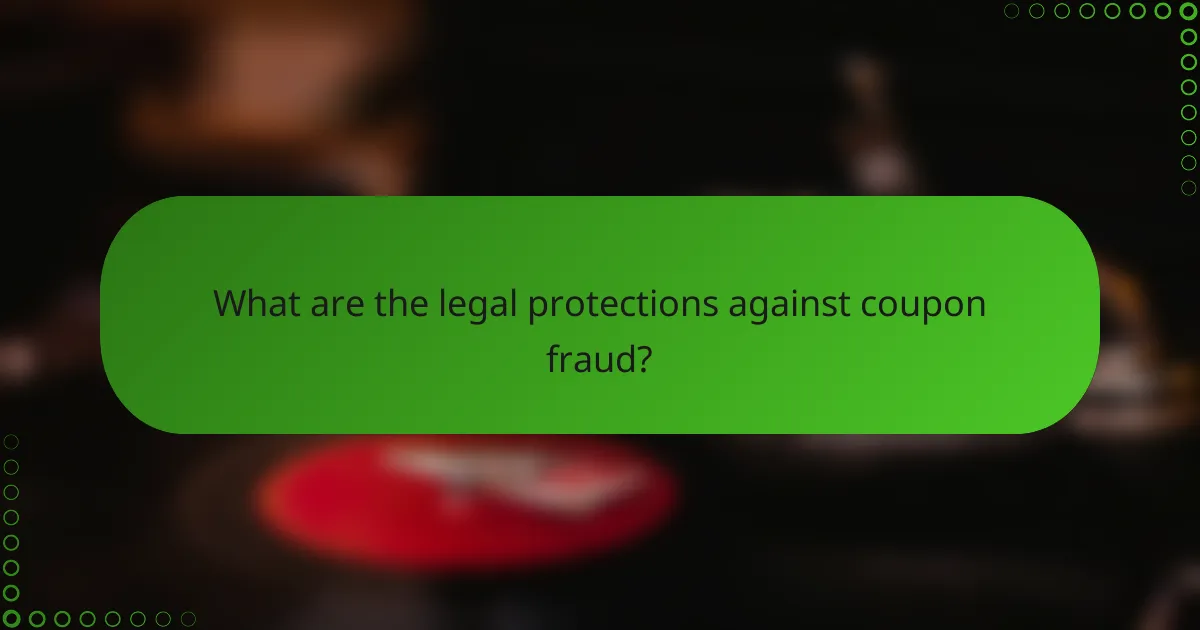
What are the legal protections against coupon fraud?
Legal protections against coupon fraud include various consumer protection laws, regulations from the Federal Trade Commission (FTC), and state-specific laws. These frameworks are designed to safeguard consumers from deceptive practices and ensure fair marketing of coupons.
Consumer protection laws
Consumer protection laws aim to prevent fraudulent activities, including coupon fraud. These laws require that businesses provide accurate information about their promotions and prohibit misleading advertising practices. Violations can lead to penalties, including fines and restitution to affected consumers.
For example, if a retailer falsely advertises a coupon that does not exist or misrepresents the terms, they may be subject to legal action under these laws. Consumers should report such incidents to relevant authorities to initiate investigations.
Federal Trade Commission regulations
The Federal Trade Commission (FTC) enforces regulations that protect consumers from deceptive advertising, including coupon fraud. The FTC requires that all promotional materials, including coupons, be truthful and not misleading. This includes clear disclosure of terms and conditions associated with the use of coupons.
Consumers can file complaints with the FTC if they encounter fraudulent coupons. The FTC investigates these complaints and can take action against businesses that violate advertising laws, helping to maintain a fair marketplace.
State-specific laws
In addition to federal regulations, many states have their own laws addressing coupon fraud and deceptive marketing practices. These laws can vary significantly, with some states imposing stricter penalties for fraud. Consumers should be aware of their state’s specific regulations regarding coupons and promotional offers.
For instance, some states may require businesses to honor expired coupons under certain conditions, while others may have specific guidelines on how coupons can be distributed. Understanding these nuances can help consumers protect themselves from fraudulent practices effectively.
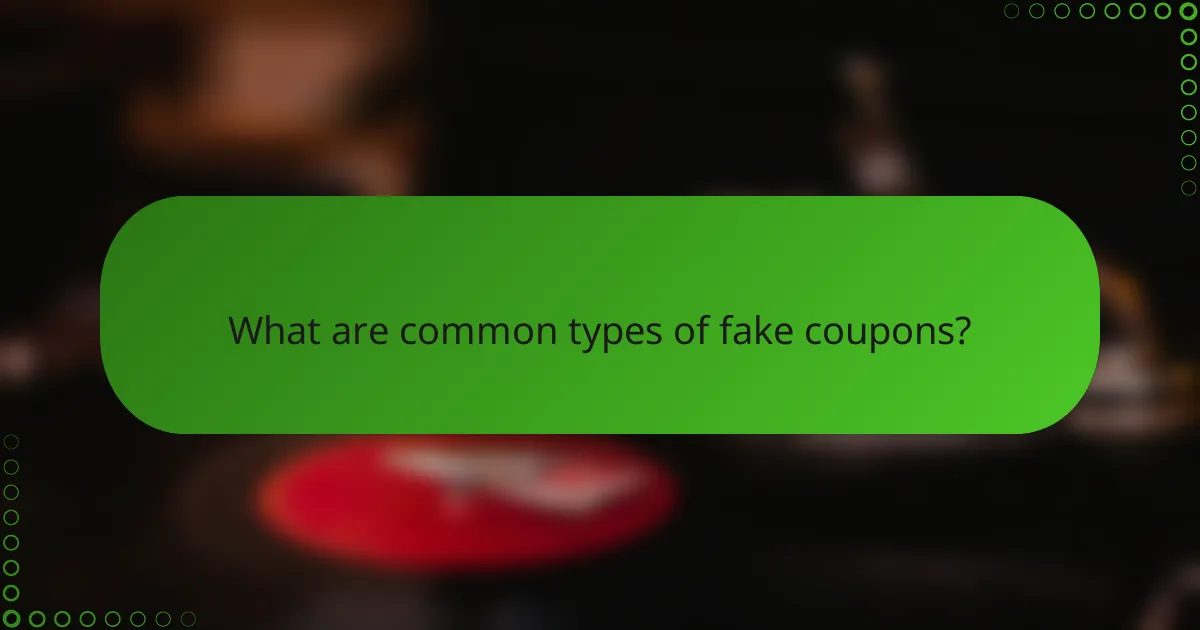
What are common types of fake coupons?
Common types of fake coupons include counterfeit printed coupons, fraudulent digital codes, and misleading promotional offers. These scams often mimic legitimate coupons but can lead to financial loss or legal issues for consumers.
Counterfeit printed coupons
Counterfeit printed coupons are often produced using high-quality printers that replicate the appearance of genuine coupons. These fakes may be distributed through various channels, including social media or email, and can be difficult to distinguish from authentic offers.
To identify counterfeit printed coupons, look for inconsistencies in the design, such as poor quality printing or missing security features. Always verify the source of the coupon before using it in-store.
Fraudulent digital codes
Fraudulent digital codes are typically shared online, often through phishing emails or fake websites. These codes may promise discounts or free products but can lead to unauthorized charges or identity theft.
To protect yourself, only use digital codes from reputable retailers and double-check the website’s URL. If a deal seems too good to be true, it probably is.
Misleading promotional offers
Misleading promotional offers can include coupons that have hidden conditions or expiration dates that are not clearly stated. These offers may lure consumers in with attractive discounts but can result in unexpected costs at checkout.
Always read the fine print associated with any coupon or promotional offer. If the terms are unclear, contact the retailer for clarification before attempting to redeem the coupon.


